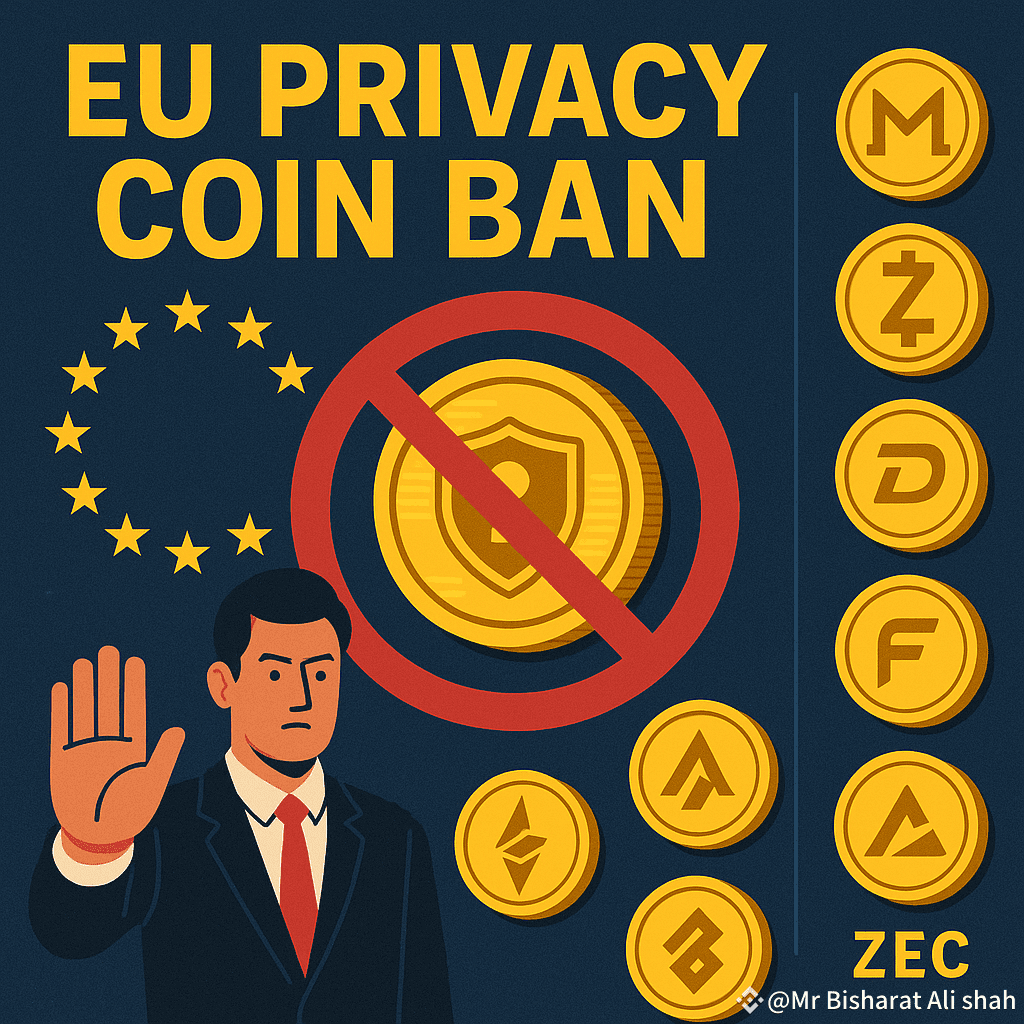
#CryptoNews #Blockchain #Cryptocurrency #Web3 #DigitalAssets Introduction
The European Union’s ongoing efforts to regulate the cryptocurrency space have taken a decisive turn with proposed restrictions and potential bans on privacy coins such as Monero (XMR), Zcash (ZEC), and others. While regulators cite anti-money laundering (AML) and counter-terrorism financing (CTF) as their primary concerns, the crypto community is divided—some see it as an attack on privacy, others as a logical step toward mainstream adoption.
---
What Are Privacy Coins?
Privacy coins are cryptocurrencies designed to enhance user anonymity by obscuring transaction details like sender identity, recipient address, and transfer amount. Unlike Bitcoin, whose transactions are visible on a public ledger, privacy coins use technologies like ring signatures, stealth addresses, and zero-knowledge proofs to ensure confidentiality.
Popular privacy coins:
Monero (XMR)
Zcash (ZEC)
Dash (DASH)
Firo (FIRO)
Beam (BEAM)
---
Why Is the EU Targeting Privacy Coins?
In 2022, a leaked draft of the EU's anti-money laundering regulations suggested a total ban on crypto assets that prevent traceability. The official concern: these coins can be used for illegal activities without detection by law enforcement.
Key motivations behind the ban:
Prevent anonymous funding of terrorism
Block dark web transactions
Enhance oversight of cross-border crypto flows
---
Binance’s Reaction: Delisting and Reconsideration
In mid-2023, Binance, one of the world’s largest crypto exchanges, announced plans to delist privacy coins in select European countries, citing compliance with local regulations. However, after community pushback and discussions with regulators and project teams, Binance reversed some of those delistings—demonstrating the complexities of balancing privacy and compliance.
---
Impact on Users and the Crypto Ecosystem
While regulators argue that banning privacy coins increases security and reduces crime, critics warn this approach undermines:
Financial privacy: Users with legitimate reasons to keep transactions private may be unfairly restricted.
Innovation: Developers might be discouraged from building privacy-first technologies.
Adoption: Privacy coins are legal in many jurisdictions, and blanket bans may alienate privacy-conscious users.
---
Looking Ahead: MiCA and Beyond
The EU’s Markets in Crypto-Assets (MiCA) framework, which became law in 2023, lays the groundwork for crypto regulation across Europe. Although MiCA doesn't explicitly ban privacy coins, its strict transparency and AML requirements make it difficult for such assets to be traded on regulated platforms.
This could lead to:
Increased use of decentralized exchanges (DEXs)
More development of non-custodial wallets and privacy layers
Potential legal challenges from privacy advocates
---
Conclusion
The EU’s stance on privacy coins reveals a growing tension between regulation and individual freedom. As governments tighten controls to prevent abuse, the crypto community must find ways to preserve the original ethos of decentralization and privacy—without crossing legal lines.
---
Optional Additions:
Infographic showing timeline of EU proposals and exchange actions
Quotes from pri
vacy coin developers or EU officials
Links to primary documents or Binance blog posts.#EUPrivacyCoinBan #AppleCryptoUpdate #CryptoNews #Blockchain #Cryptocurrency #Web3 #DigitalAssets $BTC